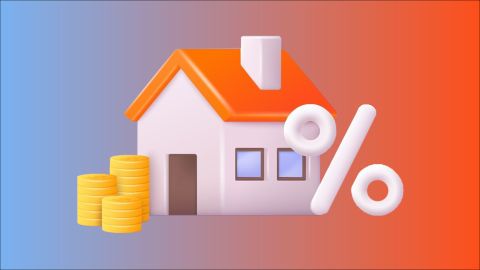The AnyRoR portal is the official online platform launched by the Revenue Department of the Government of Gujarat to help citizens easily access their land-related information. This website allows people to view details of both urban and rural properties, check property ownership, and obtain property cards without needing to visit government offices in person.
The term AnyRoR stands for “Any Record of Rights Anywhere”. It reflects the State Government’s effort to make land records digital and readily available at any time. Through this platform, residents can search and download their land documents directly from home. Whether you need ownership details or a copy of the 7/12 extract, the portal makes land information transparent, accurate, and easily accessible online.
Land records available on AnyRoR portal
View Land Record – Rural
View Land Record – Urban
Digitally Signed Record of Rights (RoR)
Property Search
E-Chavdi (Village-level online communication and record service)
Other Land Records and Reports
What is 7/12 extract?
The "7/12" extract, also known as "Satbara Utara" in Gujarat, is an extract from the land register maintained by the revenue department of the state government. This document serves several critical functions:
- Ownership details: It includes comprehensive information about the land ownership, the survey number of the land, the area of the land, and the current landowner’s name.
- Agricultural details: For agricultural plots, it details the type of crops planted over the current and previous seasons.
- Loan information: It records details of loans taken against the land, if any, which are secured for agricultural purposes.
- Tax details: Information about tax payments related to the land is also mentioned.
This document is frequently used by farmers for loan applications, legal purposes, and as a crucial piece of evidence in civil litigation.
What is 8A extract?
The "8A" extract, also known as "Khata" in the local language, complements the information in the 7/12 extract:
- Legal agriculture document: It primarily serves as a record of rights to the land. It includes the legal status of the land and details about the rights of the cultivator.
- Mutation entry: Changes in ownership through sale, inheritance, or any other form of transfer are recorded in this document. It's essential for updating the 7/12 extract post any transaction.
- Cultivation information: Similar to the 7/12, it details the type of cultivation taking place on the land.
When you have accurate land records in place, the next step is often securing financing for property development or home construction. If you are planning to build your dream home on agricultural or residential land, a home loan from Bajaj Finserv can help you turn that vision into reality with competitive interest rates starting at 7.15%* p.a Check your home loan eligibility with Bajaj Finserv today. You may already be eligible, find out by entering your mobile number and OTP.
Types of land records
The following are the four main types of land records available on the AnyRoR Gujarat website. Many other supporting forms and notices can also be accessed through the portal.
VF6 (Village Form 6): Contains entry details and records changes made to land documents.
VF7 (Village Form 7): Commonly known as the 7/12 extract; provides Survey or Khasra Number details.
VF8A (Village Form 8A): Displays Khata (account holder) details and related entries.
135-D Notice for mutation: Issued by the Talathi to invite objections regarding changes in land records.
How to check 7/12 or AnyRoR Gujarat land records?
Check rural land record
Go to the official Gujarat land records website: anyror.gujarat.gov.in.
On the homepage, click on ‘View Land Record – Rural’ under the Services section.
Choose the type of land record you want to view — for example, VF-6 (Entry Details), VF-7 (Survey No. Details), or VF-8A (Khata Details).
Select your District, Taluka, and Village from the drop-down menus.
Enter your Survey or Block Number carefully.
Fill in the Captcha Code displayed on the screen to verify your request.
Click the ‘Get Record Detail’ button to proceed.
The website will now display your rural land record details on the screen.
If you have selected VF-7, you will be able to view:
Ownership and occupant details
Land type and area information
Liabilities or mortgages (Boja)
Other rights and remarks recorded for the property
You can download or print the record for your reference.
Check urban land record
Visit anyror.gujarat.gov.in, the official portal of the Gujarat Revenue Department.
Click on ‘View Land Record – Urban’ from the list of available services.
Select whether you need a Property Card or a Unit Property Card.
Choose your District, City Survey Office, and Ward from the drop-down options.
Enter your Survey Number or Sheet Number accurately.
Fill in the Captcha Code shown on the screen for verification.
Click on ‘Get Record Detail’ to view your property information.
The portal will now display complete urban property details, including:
Property Unique ID
Ownership and land details
Property tax and electricity bill information
Registered deed and revenue case details
High Court or civic case references (if any)
Jantri (valuation) details
You may print or save the displayed record for future use or verification.






